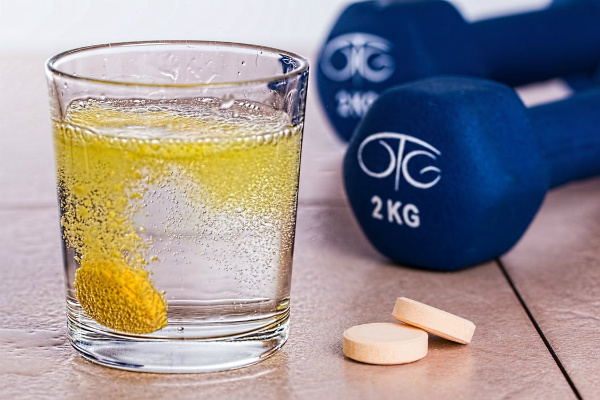If you’ve just started working out, or you’ve been training for some time and you’re looking into ways nutrition can help improve your workouts, magnesium is a good place to start.
Magnesium improves energy levels, helps the muscles to relax while increasing glycolysis – the use of glucose for energy. Which is a useful bonus when working out.
Not only that, magnesium can help the muscles to contract, making it a useful sports supplement where exercise is concerned.
So, to answer your question “is magnesium good for working out?” Yes, it is… but how exactly? This is what we’ll discuss in this article.
Table of Contents
Benefits of Magnesium For Working Out
Reduced Muscle Cramping
Have you ever been swimming, or running where your muscles begin to cramp up? Or perhaps it’s more delayed. Where you’re sat on the sofa after a run, and your leg muscles begin twitching or cramping up?
That’s a sign you could be low in magnesium as it helps the muscles to relax.
It’s been studied that a lack of magnesium could be related to the distortion of neuromuscular function. This suggests that muscle cramping and a lack of Mg could be closely related. (01)
Improved Performance
Magnesium has been shown to reduce the rate a which the body requires oxygen to function when taking part in an intense exercise.
A group of Tae-Kwan-Do athletes supplemented with Mg for four weeks. At the end of the trial, the researchers asked the athletes to complete shuttle runs. It was found that Mg increased their lactate threshold. (02)
Increased Energy
Magnesium works closely with the mitochondria to produce energy with something called glycolysis. This is the use of glucose as energy.
Magnesium assists in the delivery of nutrients into the mitochondria, which in turn, helps to create more adenosine trisphosphate ATP – thus feeding and repairing the muscles.
If you have ever read, or supplemented with creatine, you’ll know it helps to produce more ATP. Which supplies the muscles with the type of energy required for short bursts – such as 1RM squats and sprints. Magnesium works in a similar way to creatine.
While creatine will saturate the muscles with water, adding more potential to create ATP. Magnesium, on the other hand, works with the mitochondria to produce ATP efficiently via glycolysis.
To read more benefits surrounding the use of magnesium: Read my in-depth article on Magnesium here.

How Much Magnesium To Use?
How much magnesium you’ll potentially need to use will depend on a number of factors.
Such as: how often you workout, how much you weight, and the climate in which you live in (hotter climates may require more mineral consumption due to the loss of minerals via accelerated perspiration).
However, as a general rule of thumb, the RDA for Mg is roughly 350 mg per day for healthy adults.
“Recommended Dietary Allowance (RDA) for Mg is 400–420 mg for males and 310–320 mg for females above 19 years old “. (03)
Conclusion
If you were ever contemplating the use of magnesium for working out, I hope this article has cleared up some of your questions.
Let’s recap:
Magnesium can improve muscle contractions, enhance energy levels, especially during intense workouts. Furthermore, Mg can help reduce muscle cramping, which is a common issue for those who train frequently.
However, there’s much more to magnesium that these benefits I’ve just highlighted. To learn more about magnesium and how it can improve your fitness and overall health, read my in-depth article on Magnesium here.
If you begin to supplement with magnesium, you’ll soon feel and see a difference in the way you perform in your workouts, and how you feel physically post exercise, in the way Mg helps to relax the central nervous system.
For any question relating to magnesium, or any other supplement for that question, feel free to comment in the section below or reach out to me on social media. I’m here to answer any and all of your questions.
Resources:
(01) Magnesium sulfate enhances exercise performance and manipulates dynamic changes in peripheral glucose utilization. (source)
(02) The effect of magnesium supplementation on lactate levels of sportsmen and sedentary. (source)
(03) National Institute of Health – Magnesium. (source)

Leave a Reply